Citrus Aurantium Dulcis Peel Oil for Skin: Benefits and Uses
Citrus Aurantium Dulcis Peel Oil, extracted from the peel of the sweet orange, is celebrated for its skin conditioning properties. As a bounty of nature, this essential oil is rich in compounds beneficial for skincare, imbuing products with revitalizing fragrances and therapeutic qualities. We understand its importance in enhancing the texture and appearance of skin, qualifying it as a coveted ingredient in the cosmetics industry.
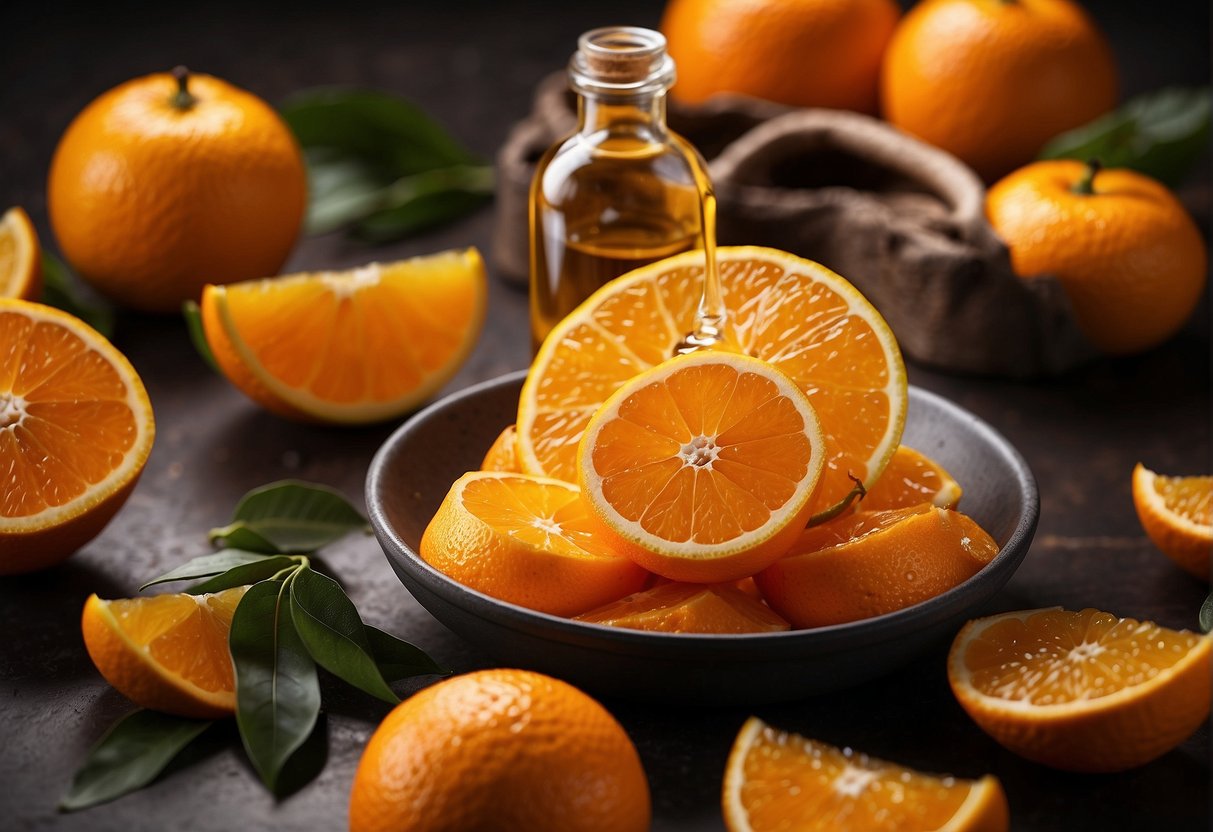
Utilizing natural ingredients can be a gateway to healthier, more vibrant skin. Citrus Aurantium Dulcis Peel Oil is not just a fragrant additive but a potent ally in combating oxidative stress, which can lead to premature aging. In our analyses of skincare elements, we consider safety and efficacy paramount, ensuring this orange peel extract is suitable for a variety of formulations.
When we incorporate such ingredients into skincare routines, we aim for more than sensory pleasure. Through careful selection, we harness the potential of Orange Peel Oil to improve skin's overall condition while being mindful of its allergenic potential. Our expertise guides the balanced use of this oil in products intended for daily skincare.
Key Takeaways
- Citrus Aurantium Dulcis Peel Oil serves as a multifaceted skin conditioning agent.
- We prioritize the safety of natural ingredients in skincare formulations.
- The deliberate use of Orange Peel Oil in products aims to enhance skin health.
Botanical Profile and Composition

In this section, we'll explore the specific species and important phytochemical constituents that characterize Citrus Aurantium Dulcis (Orange) Peel Oil, revealing its significance in skincare formulations.
Citrus Specie and Botanical Name
Citrus Aurantium Dulcis is the botanical name for the common sweet orange. It's also known as Citrus Sinensis. The oil is derived from the peel of this fruit, which is a rich source of various bioactive compounds and is widely utilized in the cosmetic industry.
Key Constituents in Orange Peel Oil
Orange peel oil, notably from the species Citrus Aurantium Dulcis, is mainly composed of two essential components:
- Limonene: This constitutes the majority of the oil, typically above 90%. Limonene is known for its refreshing citrus scent and is commonly used in aromatherapy.
- Linalool: This is another significant constituent that gives the oil its soothing and calming fragrance. Linalool also has potential skin-soothing properties.
Other than these, orange peel oil is an excellent source of antioxidants which play a crucial role in protecting the skin from oxidative stress. Our formulation uses Citrus Aurantium Dulcis Oil for its natural, vegan essence, harnessing its capabilities to refresh and potentially help the skin's barrier against environmental aggressors.
Benefits of Orange Peel Oil for Skin
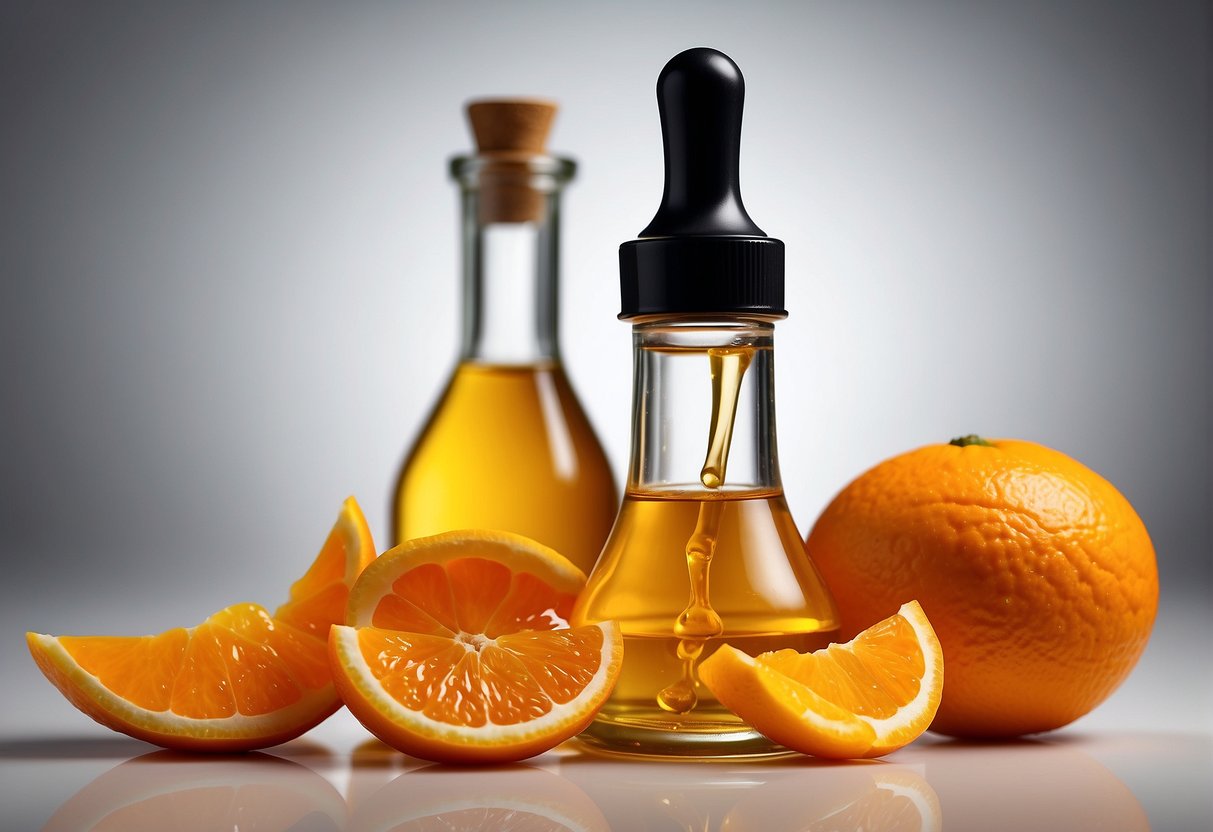
We find that Citrus Aurantium Dulcis (orange) peel oil, also known as orange peel oil, is a valuable addition to skincare routines. Its rich composition provides antioxidants and improves skin texture, while aiding in anti-aging treatments.
Antioxidant Properties
Orange peel oil is abundant in Vitamin C— a potent antioxidant. Antioxidants help protect the skin from environmental stressors, potentially reducing the risk of premature aging. By incorporating orange peel oil in our daily skincare, we harness these antioxidant benefits, promoting a radiant and healthier complexion.
Skin Texture Improvement
We often seek ways to enhance the texture of our skin and orange peel oil can be a beneficial ingredient. Its properties may help in moisturizing the skin and refining pores, leading to a smoother appearance. Incorporating this oil into moisturizers or serums, we support the skin's natural clarity and texture.
Use in Treating Aging Signs
Orange peel oil is known for its contribution to antiaging skin treatments. We recognize its role in minimizing the appearance of fine lines and wrinkles, attributes often sought after in antiaging products. Through the use of essential oils like orange peel oil in our treatment regimens, we aim to maintain a youthful and firm skin tone.
Safety and Allergenic Potential
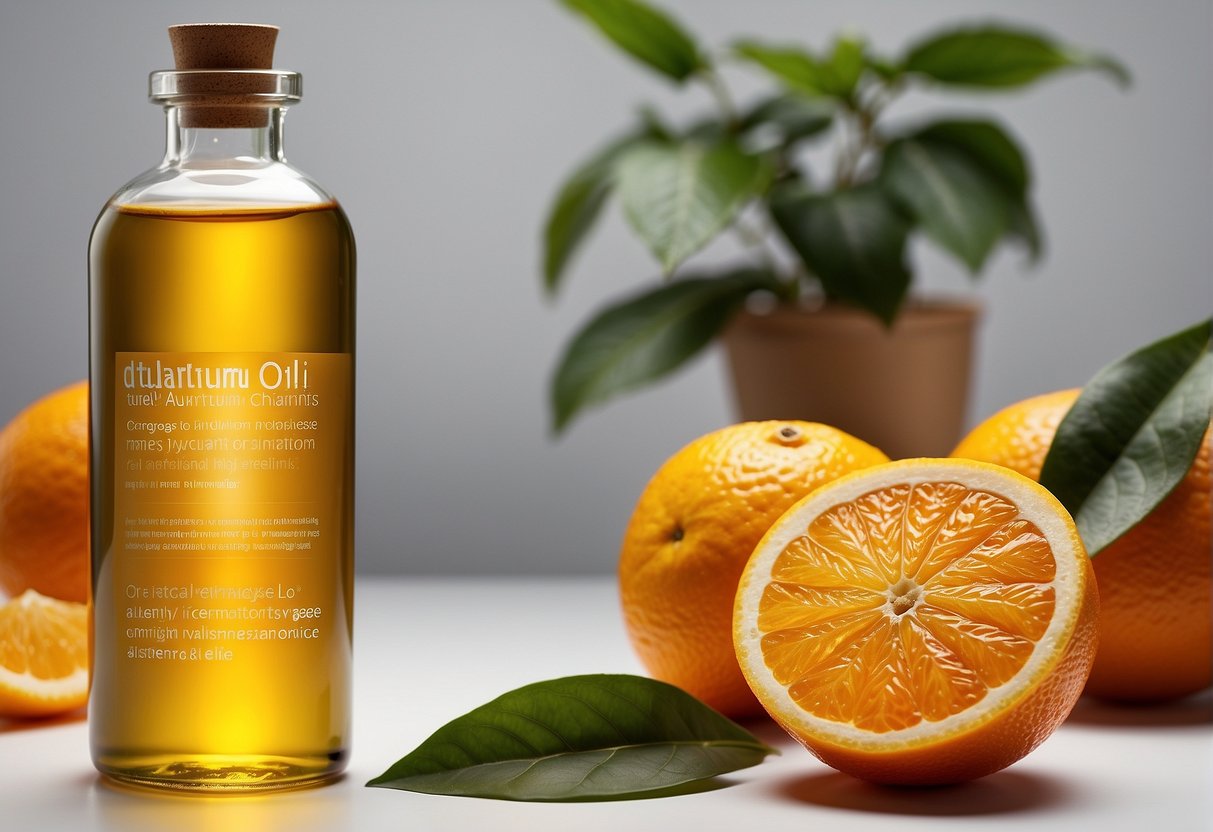
We recognize that while Citrus Aurantium Dulcis (Orange) Peel Oil is valued for its fragrant properties and potential skin benefits, understanding its safety and allergenic potential is crucial for informed use in skincare.
Irritation and Skin Sensitivity
When it comes to Citrus Aurantium Dulcis Peel Oil, skin irritation can occur, particularly if you have sensitive skin. Irritation may manifest as redness, itching, or discomfort. As with many essential oils, the allergenic potential of this oil should not be underestimated; case studies have reported instances of allergic reactions. Notably, Citrus Aurantium Dulcis Peel Oil is not listed among the 26 established cosmetic allergens.
Concentration and Safe Use Guidelines
For Citrus Aurantium Dulcis Peel Oil, the concentration used in cosmetic products is significant. It is paramount to adhere to recommended safe use guidelines that stipulate the maximum concentration of 2% in skin cleansing preparations to mitigate risks of irritation or sensitization. This threshold helps to balance efficacy with safety, ensuring the oil's benefits can be enjoyed without undue adverse effects. Overexposure might lead to sensitivity or phototoxic reactions, especially in sunlight, so it’s essential to respect concentration guidelines for personal care products.
Incorporation in Skincare Products
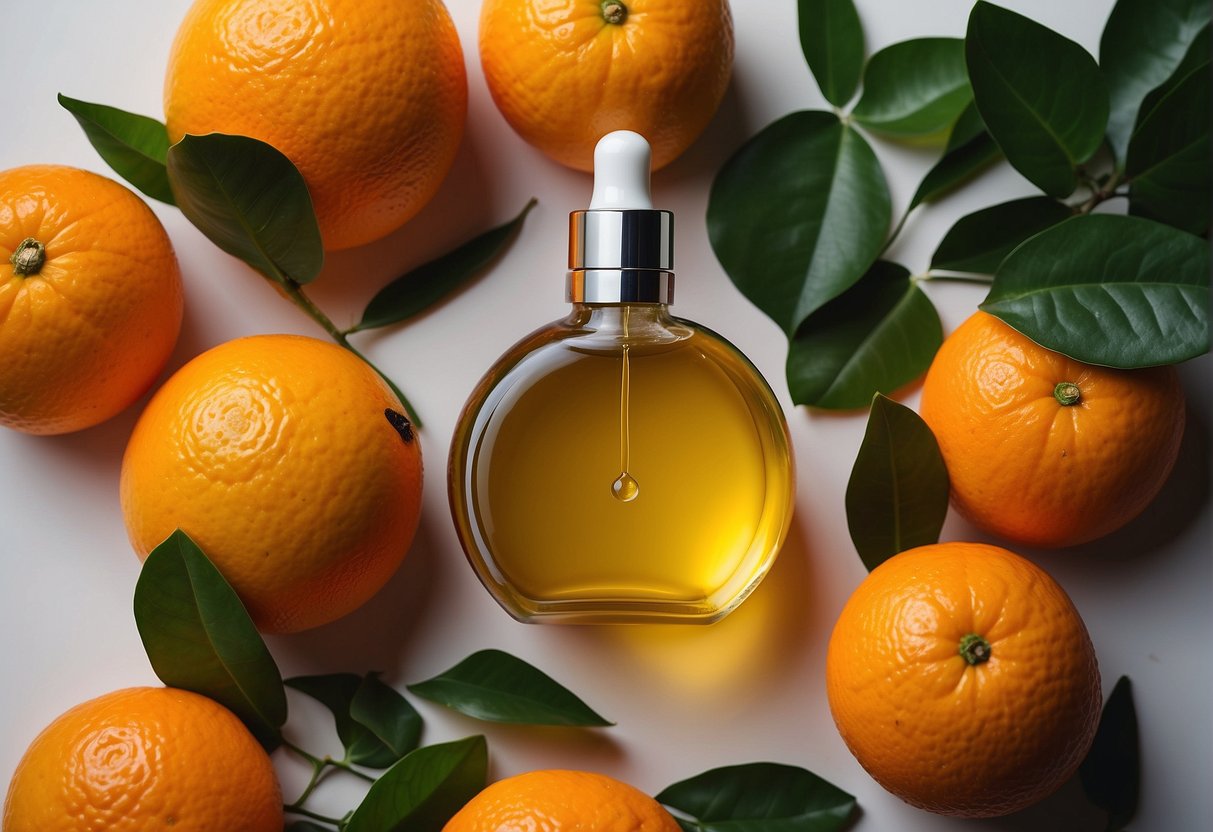
We recognize Citrus Aurantium Dulcis Peel Oil, commonly known as sweet orange oil, as a valuable ingredient in skincare formulations. Its appealing fragrance and potential skincare benefits make it popular in a variety of cosmetic products.
Formulating with Orange Oil
In our experience, incorporating sweet orange oil in skincare products requires careful consideration of its concentration and compatibility with other ingredients. It functions primarily as a skin-conditioning agent and fragrance, where it imparts a refreshingly sweet citrus scent. Here's a simple guideline table on the use of orange oil in skincare formulations:
| Formulation Type | Concentration | Purpose |
|---|---|---|
| Serums | Up to 1% | To brighten and provide antioxidant properties |
| Moisturizers | Up to 1.5% | To hydrate and improve skin texture |
| Masks | Up to 1.5% | For aromatic and skin-conditioning benefits |
| Soaks | Up to 2% | To soothe skin and add a citrus fragrance |
Product Types with Orange Oil
Orange oil is versatile and can be found across our skincare range. Specifically, we include it in:
- Serums: Sweet orange oil's antioxidants support the serum's goal to protect and revitalize skin.
- Lotions: Here, it serves to lightly scent the product while contributing to hydration.
- Masks: We infuse masks with orange oil for its sensory and skin-conditioning properties.
- Moisturizers: Its inclusion supports moisture retention and adds a fresh, citrus aroma.
- Soaks: The oil enhances the bathing experience with its vibrant scent and skin-soothing effects.
Through careful formulation, orange oil becomes a multi-faceted contributor to skincare products, offering both functional and sensory benefits.
Comparative Analysis
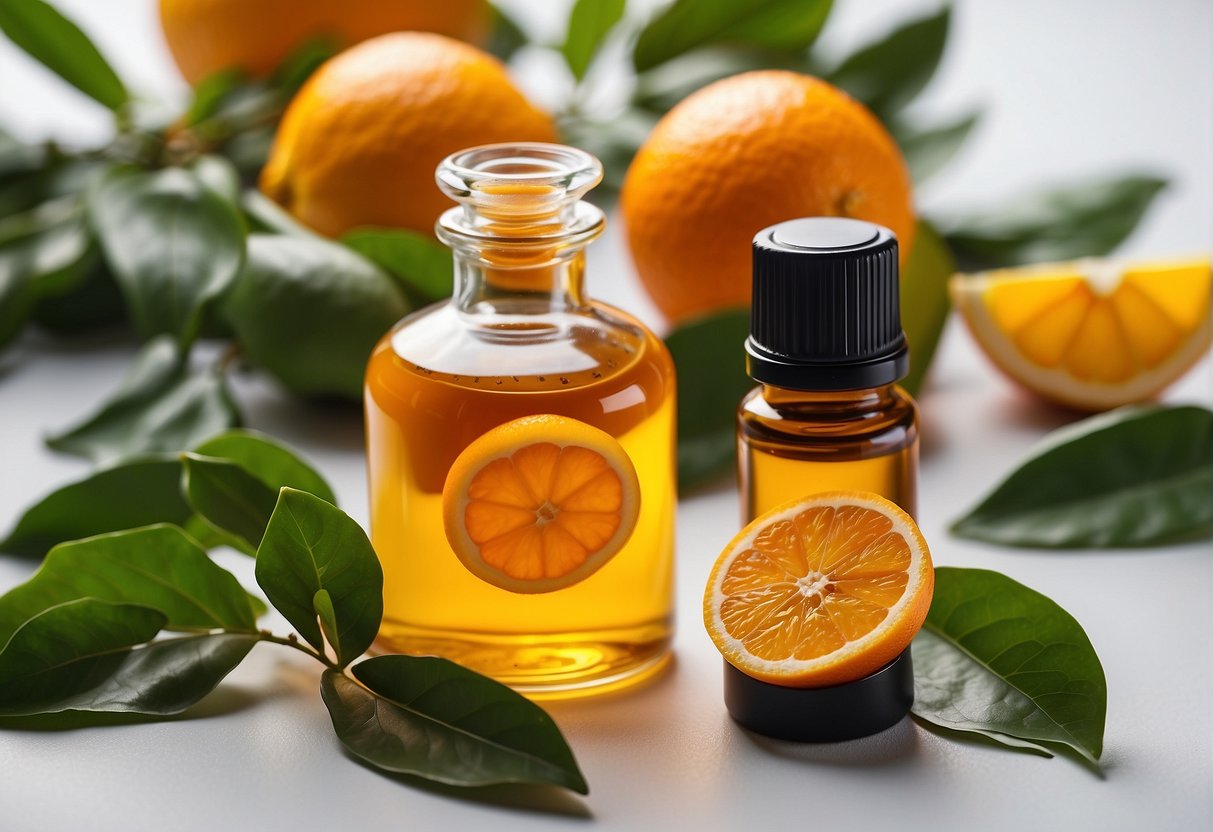
In comparing Citrus Aurantium Dulcis (Orange) Peel Oil with other fragrance options, we focus on how it differentiates from synthetic fragrances and other essential oils.
Natural vs. Synthetic Fragrances
Citrus Aurantium Dulcis Peel Oil, as a natural ingredient, offers a scent derived from the actual peel of oranges. This stands in contrast to synthetic fragrances, which are created through chemical processes. While both can provide a lasting aroma, natural orange oils are also valued for potential skin benefits and are typically preferred in vegan formulations.
Citrus Aurantium Dulcis Oil vs. Other Essential Oils
When we compare Citrus Aurantium Dulcis Oil to other essential oils, it's important to note its unique profile. Unlike some essential oils which can be more abrasive, orange peel oil is known for its gentle properties on the skin. This aspect makes it particularly suitable for inclusion in skin care products aimed at soothing the skin. Moreover, the citrus scent offers a fresh and invigorating experience which often cannot be matched by other essential oils.
Frequently Asked Questions
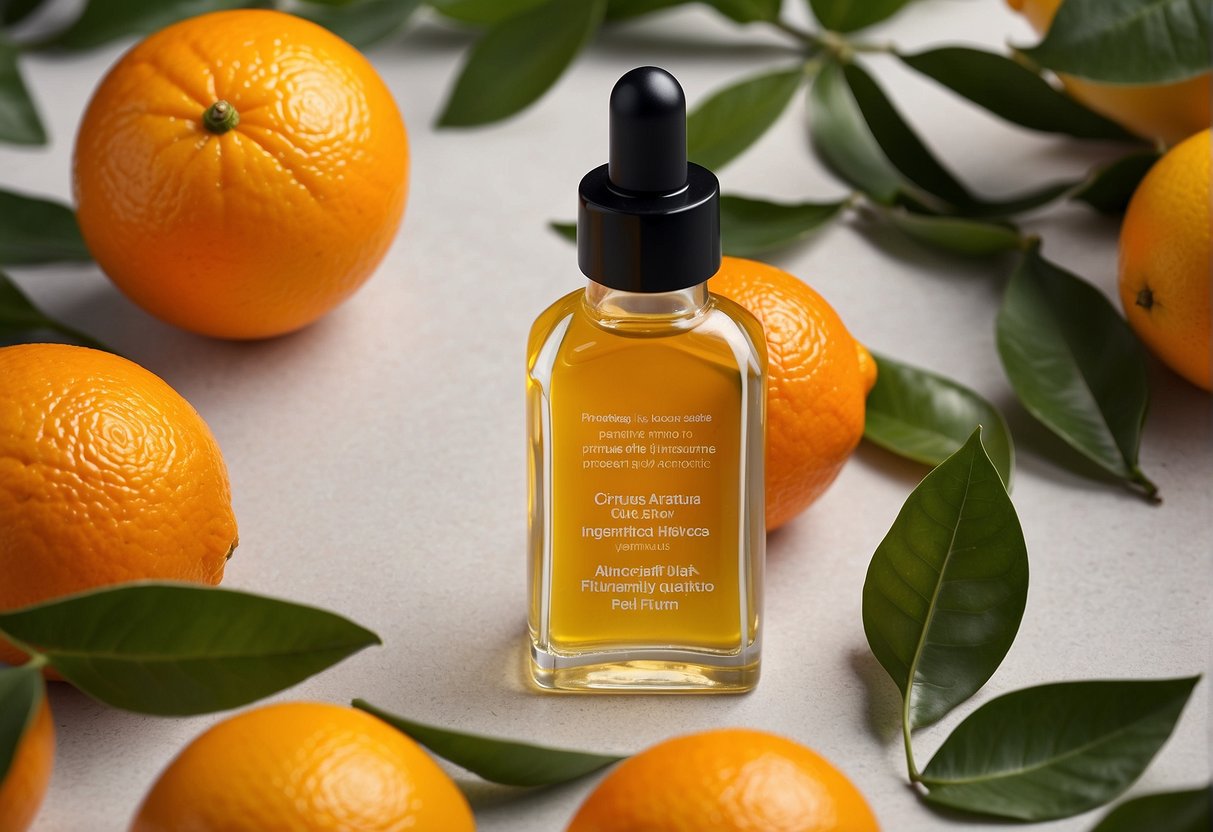
In this section, we'll address common inquiries about the use of Citrus aurantium dulcis peel oil in skincare.
What are the benefits of using Citrus aurantium dulcis peel oil in skin care routines?
Citrus aurantium dulcis peel oil is known for its skin conditioning properties. It's also used for its fragrance and potential to brighten the skin.
How does Citrus aurantium dulcis peel oil compare to Citrus sinensis peel oil in terms of benefits for the skin?
While both oils come from orange peels, Citrus aurantium dulcis peel oil is generally used at lower concentrations in skin care. This may be due to its higher potency compared to Citrus sinensis peel oil.
Can Citrus aurantium dulcis peel oil help improve the appearance of the skin?
Yes, Citrus aurantium dulcis peel oil can help improve the skin's appearance by offering emollient properties and contributing to a brighter complexion.
Is there a risk of Citrus aurantium dulcis peel oil clogging pores or causing acne?
Citrus aurantium dulcis peel oil has a lower maximum use concentration range in formulations, which suggests it is less likely to clog pores when used in recommended amounts.
What are the differences between Citrus aurantium dulcis peel oil and other citrus oil extracts like Citrus limon and Citrus grandis?
Citrus aurantium dulcis peel oil is primarily used for skin conditioning, while oils like Citrus limon (lemon) may be more astringent. Citrus grandis (grapefruit) peel oil is often utilized for its refreshing scent and antioxidant properties.
How should Citrus aurantium dulcis peel oil be applied to the skin for maximum effectiveness?
For best results, Citrus aurantium dulcis peel oil should be applied as part of a formulation and at concentrations advised by skin care professionals to ensure effective and safe usage.